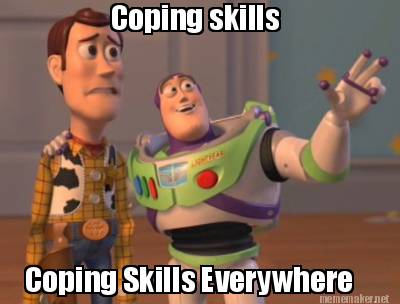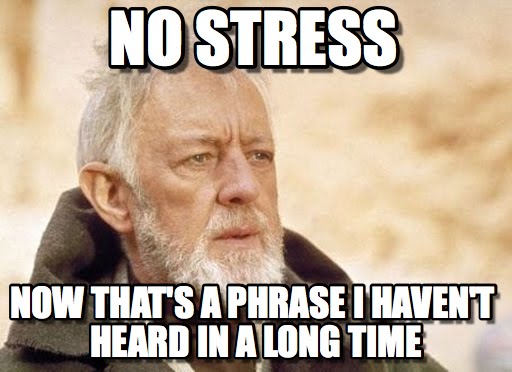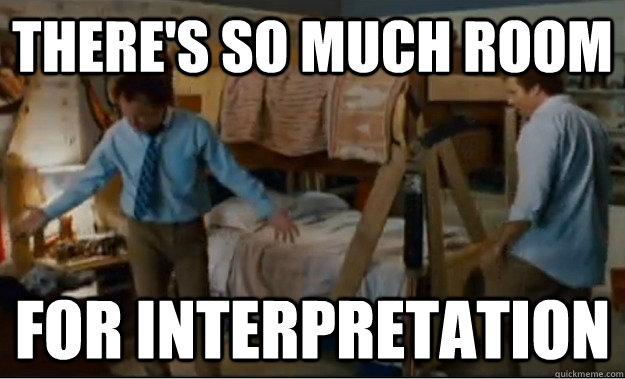Fake It, Till You Cope with It
Think of something you hate doing. It can be exercising, work, visiting the in-laws, writing a paper (something I personally relate to), etc. You could hate how much time it takes out of your life, you could hate how much stress it brings, you could hate how much it drains your focus, or you could hate the fact that doing too much of it will drain your directed attention and inhibit you from focusing on things you love. One of the reasons you hate doing something is because it puts strain on you. However, the million-dollar question is, how do you cope with doing something you hate? One the answers; is fake it, until you make it.

How does one “fake it till you make it” in terms of coping? The answer is simple; it’s all about the interpretation. It’s about how you interpret the thing you hate which makes all the difference. It’s the difference between feeling tense because you must do the thing you hate and relieved because you’re able to properly interpret it in a way where less stress internalized.
To put this in more perspective, let’s think of the story of Tom Sawyer. In the story, Tom is given the task of painting a picket fence. Obviously, like for most people, Tom didn’t want to do this task. Painting is often stressful work. It requires plenty of directed attention and quickly causes fatigue. When he started painting the fence, Tom pretended to have alot fun. He would be smiling and laughing and making seem like painting was a stressful, fun activity. Eventually, somebody comes by and sees Tom having a blast painting. Sawyer is able to convince the person that painting is the coolest activity ever. The person ends up painting the fence for Tom, while he sits back and relaxes.
The important thing to grasp is how Tom could convince someone that a stress-inducing task, like painting a wooden fence, was not bad. This is because Tom was able to change that person’s perception on the task. He could convince the person that they would get something fun and creative by painting, thus giving the person positive motivation to do it. Being able to positively interpret situation is a key to coping with stress. If you see an activity that you despise, pretend that it’s amazing (even if it’s not). You might just be able to trick yourself into believing it’s great.

What is coping? Coping refers to the various ways human deal with the stress of their environment. When somebody is coping with stress, it does not mean the stress will completely go away. Coping is just a way to help humans dampen, or deal, with stress in manageable ways. Think of coping as eating a steak. It would not be wise to swallow a whole steak because it is more than you can take in. That is why you must bite and chew (cope) on the steak (stress) to properly swallow it.
Stress decreases a person’s capacity to deal with environmental situations. It puts strain on their directed attention and ability to focus. If somebody is stressed out, they would unlikely pay much attention to important events going on. Directed attention is limited and fatigues easily. Without directed attention, humans would not be able to focus on important events happening within their environment.

Proper interpretations can be an ideal way for dealing with environmental stress. The lower a person’s stress the more effective they will be at their tasks. In plain English, if you cope with the things you hate, you will be able to focus on the things you love. If you see a situation, event, or task that you must do then just think about the story of Tom Sawyer.
There other great benefits interpretation have on coping. To interpret a stressful situation in a different way gives that situation more sense. Human beings feel more calm and relaxed when what they are doing has some logic behind it. The world is often unpredictable and does not always provide clear guidelines on what to do. Using interpretation while coping provides clarity. When you move to a new town, for example, and feel anxious about navigating through you new neighborhood try thinking of it in a different perspective. Think of all the nice things this new neighborhood that your old one might not have. When you're trying to memorize the layout of the streets, pretend that you're discovering rather than not trying to get lost.

Think of ways to change your perceptions of your task to find your motivations. One of the best ways to change your perceptions is to find personal ways that a stressful task can benefit you. If you can’t find any rewards that relate to you, then make one up. If you don’t have any enthusiasm, then fake it. If you pretend there is an awesome benefit, then you will most likely convince yourself that there.
No comments:
Post a Comment